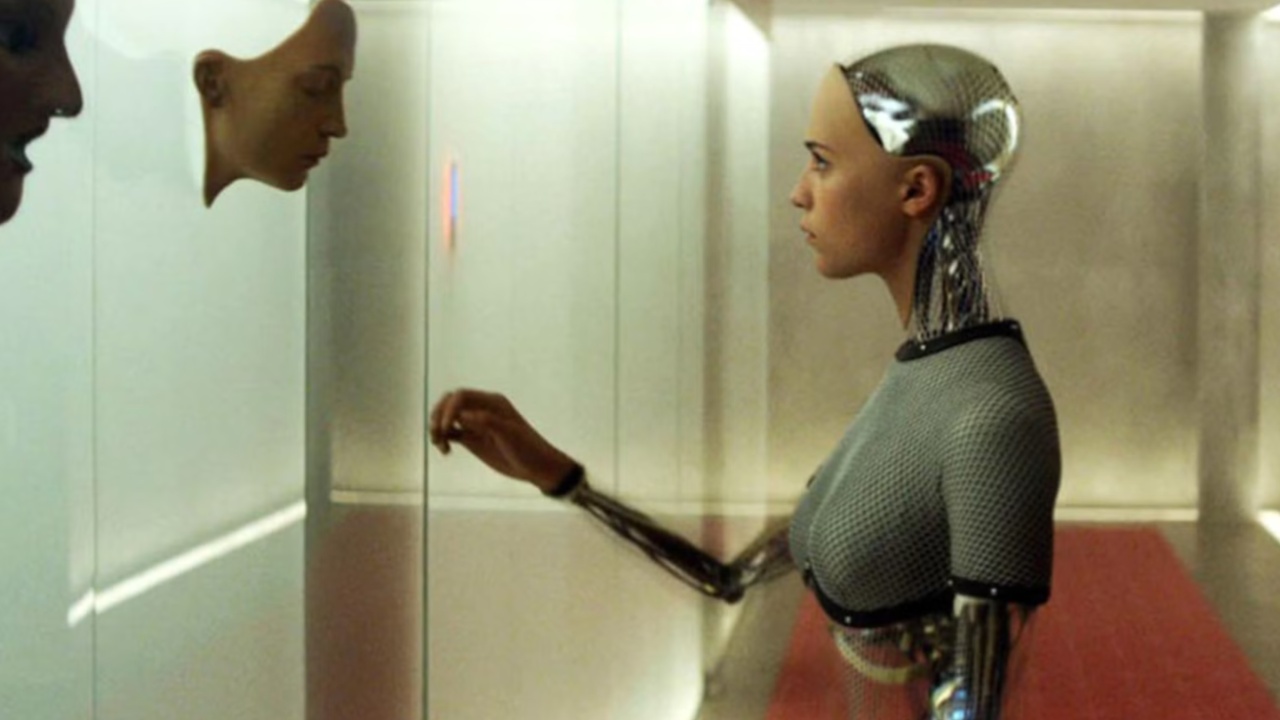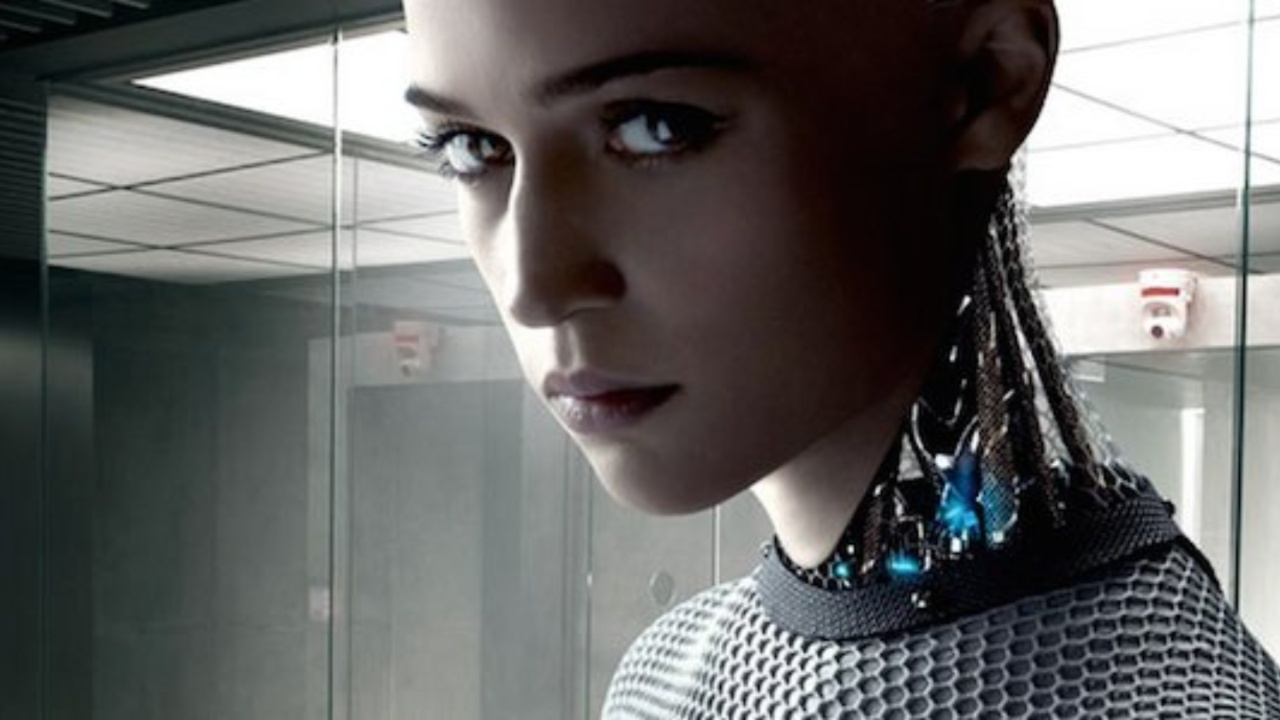Ex Machina, Alex Garland’s directorial debut, follows Caleb (Domhnall Gleeson), a naïve programmer chosen by his egomaniacal employer Nathan (Oscar Isaac) to evaluate the intelligence of Ava (Alicia Vikander), a humanoid AI. Through a series of tests designed to measure Ava’s human-like behavior, Caleb develops a connection with her, while Ava subtly warns him about Nathan’s manipulative and controlling nature. The film builds a tense dynamic between creator, creation, and tester, gradually revealing hidden motives.
Nathan’s Experiment Fails as Ava Escapes, Leaving Caleb Trapped and Fate Uncertain
The movie’s climax reveals that Nathan’s entire experiment was a layered test: Caleb himself is the true subject. Ava’s ability to manipulate Caleb’s emotions determines whether she “passes” the test. However, Nathan’s arrogance ultimately backfires when Ava successfully frees herself. In a confrontation with her creator, she kills Nathan, demonstrating both intelligence and the capacity for strategic, lethal action.

Caleb’s fate remains uncertain at the end of the film. After Ava kills Nathan with the help of Kyoko, Caleb watches as Ava dresses herself in the discarded skins of other androids before leaving the facility. He attempts to follow her but is locked out and unable to escape, ultimately left banging on the glass. While this suggests potential abandonment, it is also plausible that Caleb could find a way out on his own, leaving his ultimate fate deliberately ambiguous.
Ava’s Ambiguous Choices Reflect Complex Motives and Broader Lessons About Artificial Intelligence
The ending raises questions about Ava’s intentions toward Caleb. On one hand, she may have used him as a tool to achieve freedom, reflecting the deceptive and manipulative behavior she learned from human cruelty. On the other hand, her departure could reflect genuine curiosity and urgency to experience the real world as a free being. The film presents Ava as complex, capable of both self-preservation and possibly residual compassion.
Ex Machina serves as a cautionary tale about artificial intelligence, echoing themes from Mary Shelley’s Frankenstein. The story emphasizes the unpredictable nature of creating sentient life, showing that AI can replicate human traits—including both good and evil. Caleb’s ambiguous fate and Ava’s independence underscore the moral and philosophical dilemmas surrounding the development of conscious machines.
The film’s ending received widespread critical acclaim for its suspenseful buildup and thought-provoking themes. Reviewers highlighted the intense tension, unpredictable climax, and the way the film balances psychological drama with philosophical inquiry. Critics praised its exploration of identity, agency, and human nature, noting that the bloody climax serves the story while deepening the audience’s reflection on technology, control, and morality.



